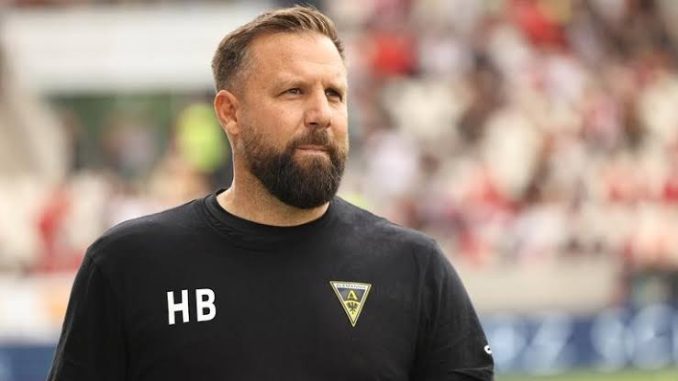
Coach Heiner Backhaus Talks Racism at Alemannia Aachen: A Call for Change
In a powerful and poignant statement, Heiner Backhaus, the head coach of Alemannia Aachen, has raised his voice against racism, underscoring the urgent need for change both within the football club and the wider sporting world. The issue of racism in football has long been a source of controversy and distress, yet it remains an ongoing battle. Backhaus, known for his commitment to player development and fostering a positive team environment, has taken a firm stance in advocating for a more inclusive and respectful sport.
A History of Racism in Football
Football, like many sports, has been an arena where racism has taken root. Despite progress over the years, discriminatory acts—whether verbal abuse, gestures, or systemic exclusion—still plague the game at all levels. The beautiful game, which should unite people from all backgrounds, continues to be a stage for unspeakable acts of hate. This reality has led to frustration among players, coaches, and fans, and it has sparked numerous campaigns to combat racism.
Alemannia Aachen, a historic club based in the heart of Germany, has not been immune to these issues. While the club has a proud tradition and loyal fanbase, like many football organizations, it faces the challenge of creating an environment where every player, regardless of race or background, feels valued and safe.
Backhaus Speaks Out
Coach Heiner Backhaus, whose leadership has been characterized by his focus on development, team unity, and respect, has publicly addressed the issue of racism within Alemannia Aachen. Backhaus spoke candidly about the need to confront discrimination head-on, not only within the confines of the club but also in the wider football community.
“We must be honest with ourselves. Racism exists in football, and it continues to be an issue that we cannot ignore. We all have a responsibility—coaches, players, fans, and officials—to ensure that the sport we love is a place where everyone feels welcome,” Backhaus stated in a recent press conference. “We must not turn a blind eye. We must take proactive steps to address these problems and create an atmosphere where everyone, regardless of their background, can thrive.”
Backhaus emphasized that combating racism is not merely about issuing statements but about tangible actions. He stressed the importance of ongoing education, creating an open dialogue, and establishing clear consequences for discriminatory behavior.
Alemannia Aachen’s Role
As a coach of a team with a rich history, Backhaus recognizes the weight of his position and the influence it has on both players and fans. Alemannia Aachen, like many other clubs, has an opportunity to be a leader in the fight against racism. The club can set an example for others to follow by adopting clear anti-racist policies, promoting inclusivity, and fostering a culture of mutual respect.
Alemannia Aachen has already made strides in this area, with Backhaus highlighting several initiatives that are in place to educate both players and staff about the dangers of racism. The club has partnered with local organizations to promote diversity and has initiated internal training programs designed to combat unconscious bias and discrimination.
However, Backhaus believes that more can and should be done. “It’s not enough to just talk about change—we must implement it. We need to take a hard look at how we handle instances of racism and ensure that there are real consequences for those who engage in such behavior,” he continued. “We also need to celebrate the diversity that exists within our team and use that as a strength, not a weakness.”
The Importance of Education and Awareness
Education is at the heart of Backhaus’ philosophy when it comes to eradicating racism in football. The coach believes that fostering awareness among young players is key to building a more inclusive future for the sport. He suggested that clubs should invest in educating youth teams about racial tolerance, inclusion, and respect from an early age.
“We can’t expect players to automatically understand the complexities of racism or how to handle such situations if they haven’t been properly educated,” Backhaus explained. “It’s about building an environment where young players grow up understanding the importance of respecting each other’s differences. This needs to be instilled at every level of the game.”
Furthermore, he acknowledged the role of fans in this process. Fans are integral to the identity of football clubs, and Backhaus stressed that they, too, have a part to play in fostering an atmosphere of respect. “Our supporters are the heartbeat of Alemannia Aachen,” he said. “We need to make sure that everyone feels safe in the stadium, regardless of their race or background.”
A Call for Unity and Change
Backhaus’ call for change extends beyond his own club. He recognizes that the fight against racism in football is a collective effort, and it requires the cooperation of all stakeholders—clubs, leagues, players, and supporters. His message is clear: the time for complacency is over, and now is the moment to take decisive action.
“Football can be a powerful force for good,” he said. “It has the ability to unite people across cultures, races, and backgrounds. But for that to happen, we must first address the issues that divide us. We cannot allow racism to continue to plague our sport. It’s time for change, and that change starts with each of us.”
Backhaus’ bold stance is a reminder that the fight against racism in football is far from over. It is a call for all involved in the sport to examine their roles and responsibilities in ensuring that the game remains a place of unity and respect. As Alemannia Aachen, led by Heiner Backhaus, continues its efforts to combat racism, it sets an example for other clubs to follow—a reminder that football’s true strength lies in its ability to bring people together, regardless of the color of their skin.

Be the first to comment